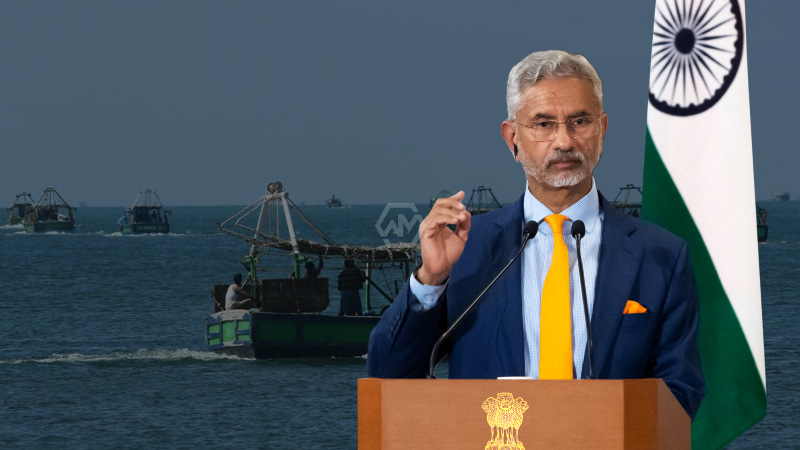- EAM S. Jaishankar blames fishermen arrests on a 1970s Emergency-era maritime pact.
- Tamil Nadu continues to face fallout, with over 528 Indian fishermen arrested in 2024.
- Agreement allegedly relinquished key fishing rights in Sri Lankan waters.
In a sharp political commentary during a mock Parliament session hosted by the Bharatiya Janata Yuva Morcha, External Affairs Minister S. Jaishankar asserted that the frequent arrests of Indian fishermen by Sri Lanka stem from a maritime agreement signed during India’s Emergency period.
With Tamil Nadu preparing for elections in early 2026, the issue has taken center stage. The DMK government has repeatedly written to the Ministry of External Affairs, demanding intervention to protect local fishermen.
Emergency’s Lingering Shadow: Jaishankar Cites Historic Pact in Fishermen Disputes
S. Jaishankar’s remarks were made during the 50th-anniversary commemoration of the Emergency (1975-77), a period marked by widespread suppression of democratic institutions. He criticized the then-central government for signing international agreements without transparency or consultation, claiming that a “genuine Parliament” would not have approved a deal that jeopardized fishermen’s access to traditional fishing grounds.
The India–Sri Lanka maritime boundary agreements, signed in 1974 and 1976, were intended to define territorial waters but have since become a flashpoint for disputes. These agreements reportedly ceded fishing rights around the Katchatheevu islet, a historically significant zone for Indian fishermen, particularly those from Rameswaram and the Palk Strait region.
The Tamil Nadu government, led by the DMK, has taken a firm stance on the matter, seeking the retrieval of fishing rights and diplomatic pressure on Sri Lanka to release detained fishermen. The state asserts that these arrests not only damage bilateral ties but also endanger the livelihood of thousands of coastal families who rely on deep-sea fishing.
Meanwhile, Sri Lanka has defended its actions, citing maritime trespassing and illegal trawling by Indian fishermen. The situation remains a delicate geopolitical issue, balancing national sovereignty, humanitarian concern, and historical grievance. Fishermen, caught in the middle, continue to face imprisonment, boat seizures, and economic hardship.
The ongoing arrest of Indian fishermen is not merely a border issue—it reflects the long-lasting repercussions of undebated foreign policy decisions. As calls for renegotiation grow louder, India’s past choices remain firmly entangled with its present challenges.
“The past is never dead. It’s not even past.” – William Faulkner



